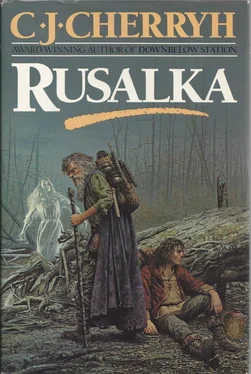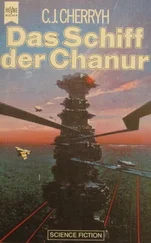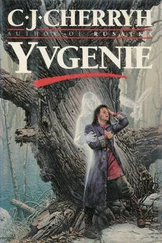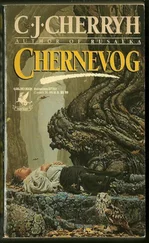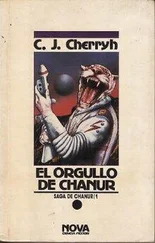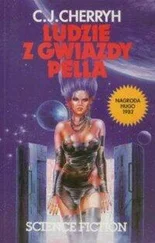A boy had watched a father showing his son woodworking once, had seen the skill change hands and wondered if the father would deliberately hold back some things to stay better than his son—but perhaps, too, he had thought, the son was clever enough to spy out the things the father would not willingly pass on—
A young man had thought once that the right friends would make him rich and happy, and as far as fools went, that one was the worst, young Sasha was quite right to pity him.
Besides, his side hurt and his head ached, because this particular fool had also thought himself so handsome no lady could ever think of anything beyond him.
All in all, Sasha Vasilyevitch seemed to have very little need of him, and still kept on being kind to him, and this absolute persistence, while it looked altogether like stupidity or villainy, did not agree on the one hand with Sasha’s competency in certain things; and on the other with Sasha’s tenderheartedness.
All in all, it was too much to think about with his head throbbing and his side aching with every step. Perhaps he had fallen in with a precocious lad who sincerely knew he needed a scoundrel and a gambler to protect him (which he was not doing outstandingly well, but leave that aside)—or, most incredible, with a poor boy so taken in by his manners that the lad cultivated him as a gentleman of potential help to him.
I think you mistake me, Pyetr would say if Pyetr were totally a fool.—You must have mistaken me for an honest man, Sasha Vasilyevitch.
—Except he can surely see what I am. We hardly met under the best of circumstances.
—So why, then, be a fool? Pyetr thought as they walked beneath the dry, laced branches. Mind your manners, Pyetr Kochevikov! The lad’s half-mad, so give him his fairyfolk and don’t torment him with the truth. He’s over all kinder than sane folk know how to be.
—And somewhere, when we’re through this—when we reach Kiev, and civilized men, I should teach him to protect himself.
At least… from other, less scrupulous scoundrels.
The sun lent them some comfort in the morning, but the road descended by afternoon into the very depths of the winter-barren forest, where branches raked and closed about the road, where the trees eventually locked their branches overhead and turned day to dusk.
“Eat,” Sasha insisted, while they were resting on a fallen log in a little spot of sun, and while they had water from a little ghost of a brook to wash down the grain they had. He gave Pyetr the most of what he had gathered; and after a little selfish consideration on the matter, and knowing how cold the wind was: “Here. Put on my coat again…”
Because he grew more and more worried about Pyetr, about the tremor in Pyetr’s hands and the paleness of Pyetr’s skin and the listlessness which took him from time to time. Aunt Henka would say that a healing man needed proper food and a warm bed to rest in; and there was nothing of the sort in his power to produce, nor looked to be, and Sasha felt—he could not help it—that if aunt Ilenka was in the habit of blaming him for everything that happened in The Cockerel, Pyetr should surely have a heavy claim to lodge against him—counting that, if not for bad luck, Mischa and a mud puddle, Pyetr might have left The Cockerel more rested, warmly dressed, and better-provisioned. But Pyetr insisted not to blame him for his misfortunes, and gave him a grateful clench-jawed nod for the loan of the coat.
Which touched Sasha in a strange way—the more so because Pyetr himself seemed to realize his danger from the cold, but had never asked him for the coat; and because he might truly be responsible for Pyetr’s condition, if only for failing to snatch up the blankets, and Pyetr had never once cursed him or blamed him for it. Pyetr’s only word on it was a gibe or two about his luck when he rallied, foolhardy jokes that worried him more than they stung—and worried him most for Pyetr, who, weak as he was, challenged far more than the sweep of aunt Ilenka’s broom or the sturdiness of uncle Fedya’s porch, and dared far less patient things than the lazy Old Man of The Cockerel’s stable.
Certainly, Sasha thought, if he might be responsible for Pyetr’s bad luck, he also must be responsible for things nature had not equipped Pyetr Illitch to feel or see—since perhaps the Field-thing heard Pyetr Illitch no better than Pyetr Illitch heard the Field-thing; and no better than Pyetr Illitch felt the chill in these woods which had nothing to do with the remaining snowbanks; and no more than Pyetr Illitch understood that, by all the talk that drifted around The Cockerel’s kitchen hearthside—eastward was not a good direction to travel.
“I’ve heard,” Sasha said while they rested on that fallen log, at that stream side, “—I’ve heard there used to be farms this way. I’ve heard there used to be travelers and towns and all, but things stopped coming from the east, and the bandits set in, and the tsar built the south road because it was just too hard to do anything about the bandits.”
“You’ve heard,” Pyetr said hoarsely, and dipped a hand in the icy water and washed his face with it before he worked himself, grimacing and biting his lip, into the coat. “Let me tell you about Kiev, boy. There’s towers tall as mountains, with gold on the roof ridges. Have you heard that? The river goes down to the warm sea, where there are crocodiles.”
“What’s a crocodile?”
“A kind of dragon,” Pyetr said. “A dragon with teeth like spears and armor on his sides. He weeps tears of pearls.”
“Pearls!”
“So they say.”
“You don’t even believe in banniks! How can a dragon cry pearls?”
He should not have asked. Pyetr thought about that a moment, and his cheerfulness faded and he looked harrowed and wan. “Truthfully,” he said, hard-breathing from his struggle with the coat, “I doubt the dragons. But the Great Tsar lives there. That much I know is true. The Tsar of Kiev is rich, his boyars are rich, and rich folk shed gold coins like birds in moult, never miss it, never care. That’s what I’ve heard. All the gold there is comes sooner or later to Kiev. So there has to be a little of it for you and me.”
Pyetr’s eyes brightened when he talked about the gold. And he had said you and me , which nobody had ever said in Sasha’s memory— you and me was much rarer and much more desirable, in Sasha’s reckoning, than pearl-weeping crocodiles. Pyetr doubted the Field-thing; Sasha doubted Kiev and the gold-capped towers; but you and me was precious here and now.
For the rest, Sasha knew his luck, and hourly watched it fade—Yes, he said to make Pyetr happy. Yes, I want to see that, yes, of course I believe in Kiev.
Mostly he believed that they were lost, and that if they went back to Vojvoda the tsar’s men would hang Pyetr and perhaps hang both of them; but if they went on there was no food in this woods and there was no hope either.
When we get to Kiev, Pyetr would say as they walked that afternoon; and told him about elephants with snakes for hands, and the great roc that laid eggs for the king of the Indee.
Truer than the bannik, Pyetr said with a wink, and shortly after that, hurt himself with a catch of his toe in a root and took a terrible stitch in his side.
“I’m all right,” he said after that, white and shaking; and would not let Sasha open the coat to see his bandages. “Let be,” he said, waving him off. “Let be.”
But the pallor did not go away and Pyetr did not joke after that, or tell him stories while they walked.
The bed they had this night was a pile of rotten leaves next an old log, on an evening so chill breath frosted in the twilight, and Sasha tried, with rubbing sticks over tinder and with the most earnest attempt at a spell he had ever tried in his life, to wish a fire into life; but he only overheated himself and blistered his hands and got not so much as a curl of smoke.
Читать дальше
